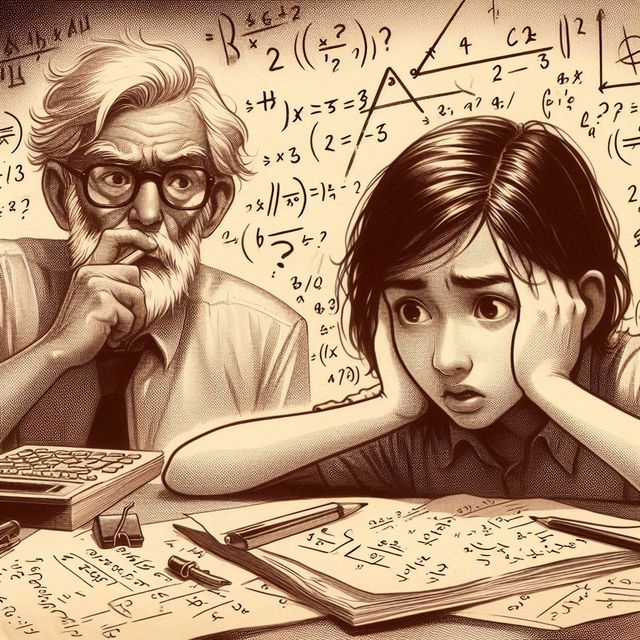-
Vijay Fafat
- Published on
A kind of magic realism story which stretches beyond the concept of a harmful meme into the realm of the speculation that certain kind of knowledge can destroy all reality.
A mathematician discovers that a 15-year old Boston child, Grigori, has solved the indecipherable mathematical scribblings of an old man after his death. Significantly, the old man had spent 30 years trying to solve Fermat’s Last Theorem but before he could succeed, Andrew Wiles finished his proof of the conjecture. The old man’s “outrage had been apoplectic and he suffered an immense and catastrophic stroke that deprived him of his voice, some of his motor functions and, temporarily, his wits”. In this virulent state, he scrawled an arcane mathematical mantra which he later termed “unsolvable quakery”. His granddaughter, mesmerized by the talismanic hieroglyph, called it “a philosophical question formulated as a mathematical problem.”
So… apparently, the problem was not supposed to be solved in our reality but now that it has been, our universe starts to wink out of existence (“an unmaking of existence”), almost as if the old man’s rage required a large enough victim…
“Mathematics at an exalted level is a kind of magic. If the fateful sum had been set down in all its inexorable and deadly perfection in the Middle Ages, it would doubtless have been regarded as a spell, and like as not the young savant who penned it would have been burnt at the stake.
[…] it may be reasonable that some folk prefer to call that dreadful sum that has been writ ‘magic’, since it will affect the greatest change of all: It will unmake existence.
[…] the math of the sum and its solution were quite simply too advanced for him and his Adelaide colleagues, for all their brilliance and eminence, to fully grasp. But it definitely involved some sort of ground-breaking force of reversion.”
The rest of the story speaks of how humanity reacts to physical evidence that the wave of darkness and extirpation is approaching earth from all sides, in a manner very reminiscent of Philip Latham’s story, “The Xi Effect”.
I don’t know why the author calls the harmful mathematical scribble a “mathematical sum” in multiple places in the story - this is a third-grader way of referring to a mathematical problem. And it has a line which will blow some tops:
“Mathematicians and scientists are notoriously unable to communicate clearly, especially with the non-mathematically or scientifically inclined mind. And the lay mind is guilty of too readily closing itself to anything requiring more than the most basic digestion.”
The story has sufficient information to let the reader deduce that the Judgment Day is sometime in 2023 / 2024…
